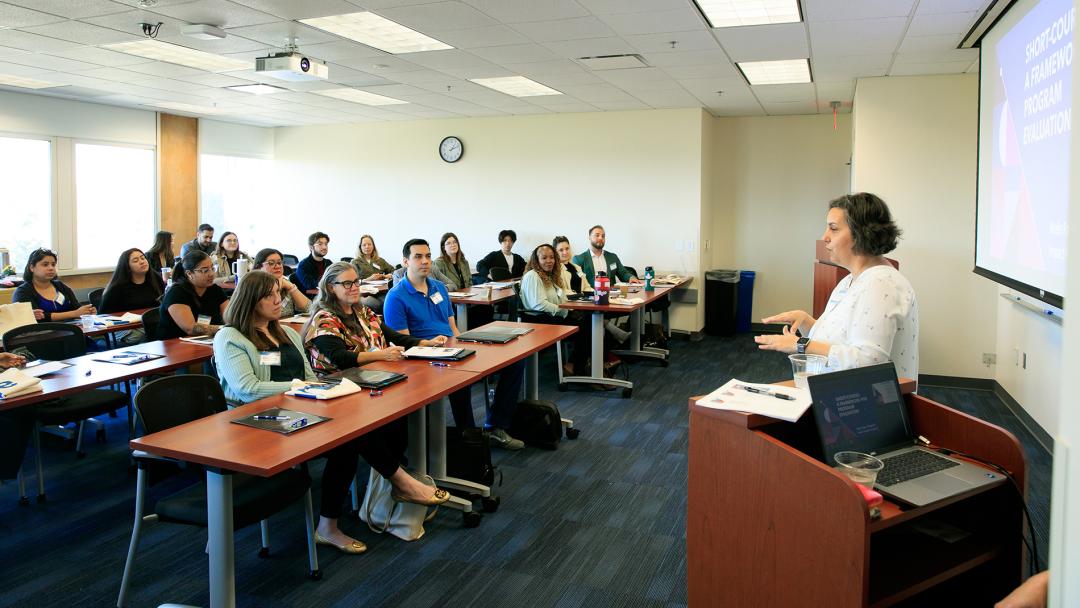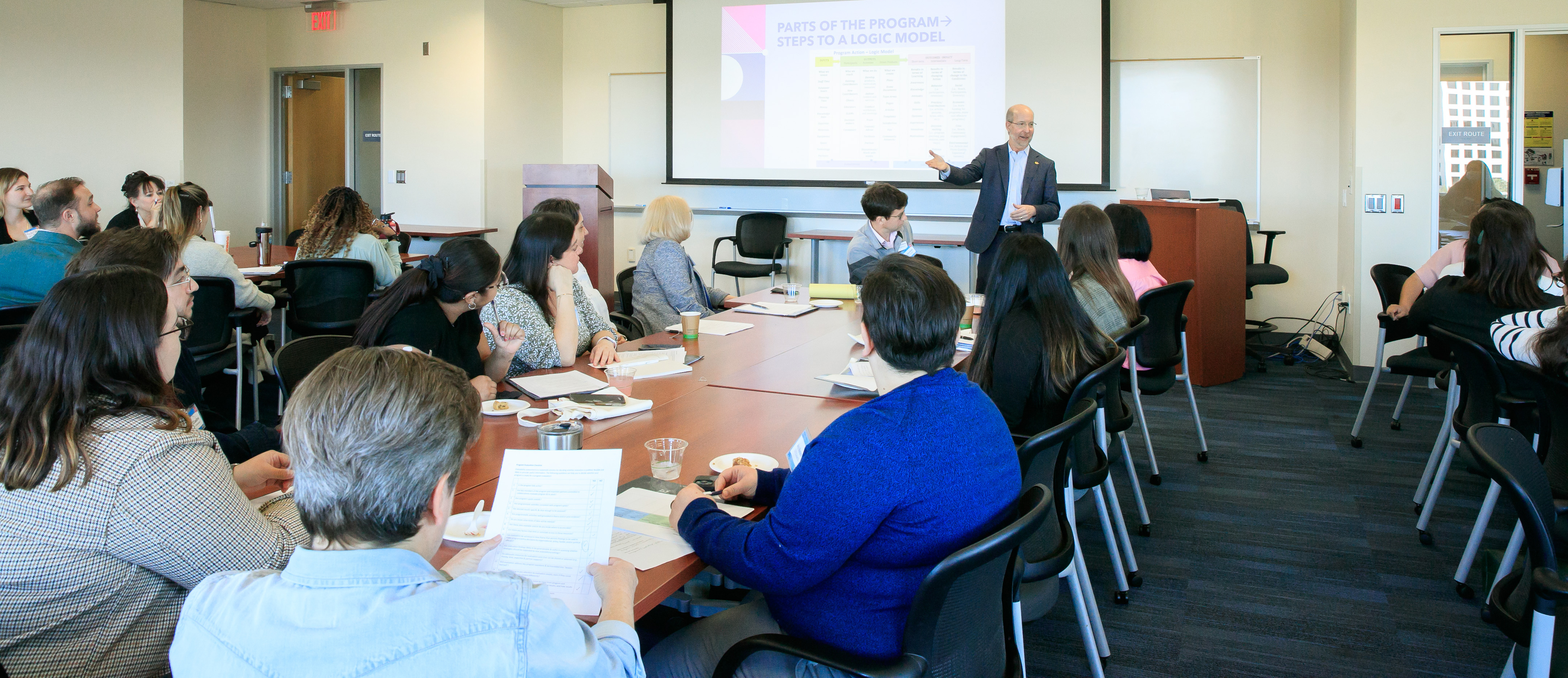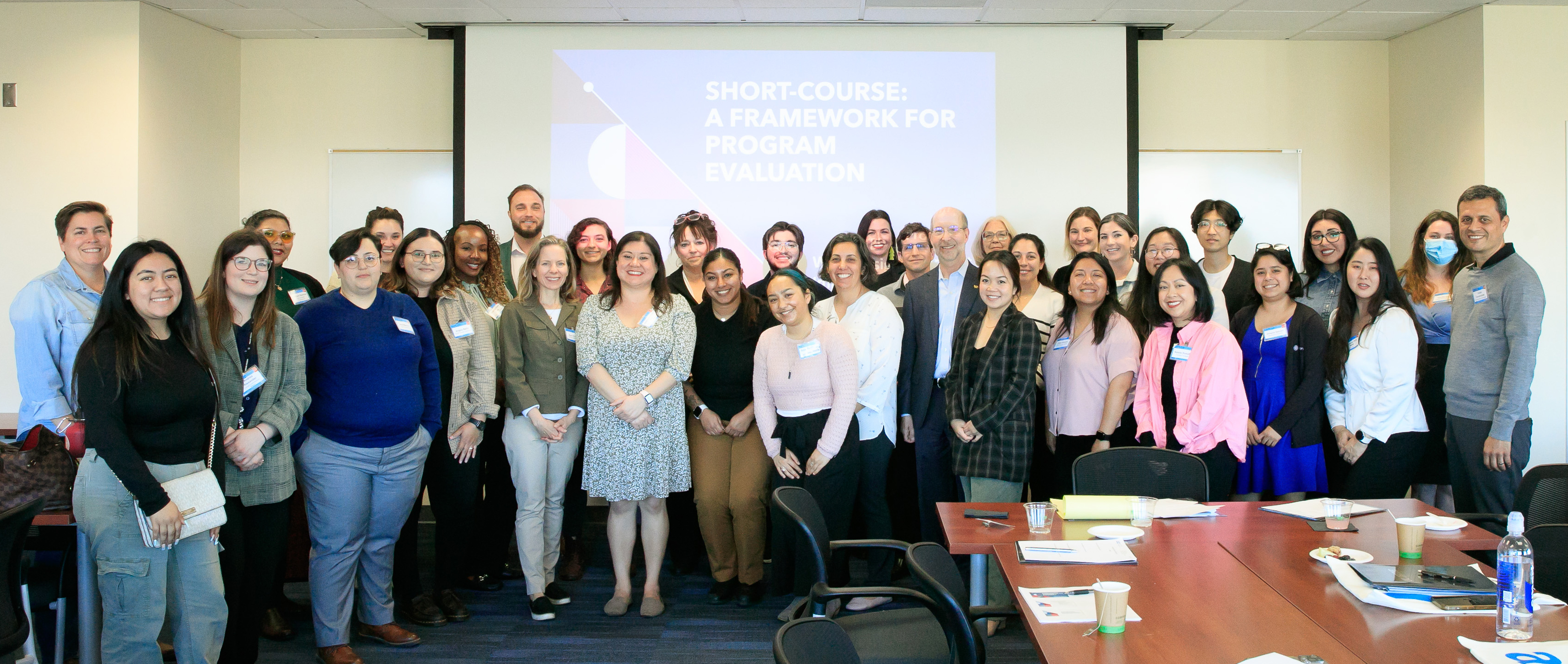
Professor Dara Sorkin leads assessment training session. Below: Dean Jon Gould speaks to participants; and all attendees. Photos by Han Parker
Wells Fargo supports evidence-based assessment training program
About 40 staff members from various Orange County nonprofit agencies took part in the School of Social Ecology’s first assessment training session in which they learned how to evaluate their organizations’ impact.
“The move to evidence-based practices and to bringing methods to the evaluation of your programs is exciting,” Dean Jon Gould told the participants, representing Project Hope Alliance, Jamboree Housing, LGBTQ Center OC, Human Options, UCI Health, Thomas House Family Shelter, Friendship Shelter, Homeaid OC, Climate Action Campaign and others. “It’s exciting because there’s an opportunity to examine your programming and figure out whether what you’re doing is having any impact and why.”

With support from the Wells Fargo Foundation, the March 19 training session was led by Dara Sorkin, UC Irvine professor of medicine and director of the Institute for Clinical and Translational Science community engagement unit.
“This is an amazing cohort of people and changemakers,” said Julie Tomanpos, Wells Fargo associate vice president of philanthropy and community impact, addressing attendees at the half-day training. “You’re all meeting the needs of our community at a lot of different levels. If you look round the room, we have housing services providers, affordable-housing builders, developers and really innovative programs. I’m excited about our partnership with the UCI School of Social Ecology and hope that you get a lot out of this program because, as funders, we’re always looking to our nonprofit partners to tell us what our impact has been, and this is one of those key programs that’s going to get you to that point where you can measure not only outputs but also outcomes for the people you are serving.”

Indeed, agreed Gould and Sorkin, who has a Ph. D. in psychology and social behavior from the School of Social Ecology.
Evidence-based assessment is essential for businesses and nonprofit organizations, as funders and clients seek to know what works and why and where future investments should be made, Gould noted.
“It is no longer enough to report an organization’s outputs; leaders must explain whether and why projects have succeeded and whether resources are achieving their intended and best use,” he said. “Empirical evaluation, though initially challenging for nonprofits with limited resources, is achievable and offers many benefits. Fortunately, this training program is available to aid nonprofits in the transition to evidence-based assessment.”
The program was created to meet the growing demand for accountability. In addition to the training session, experts are offering assessment coaching and technical assistance in preparing an evaluation plan.
“This is not training merely to help organizations complete their grant reports for funders,” Gould said. “It is a larger effort to provide nonprofits the training, support, and ensuing time-savings to improve their assessment and evaluation efforts so they can better achieve their programmatic goals.”
— Mimi Ko Cruz